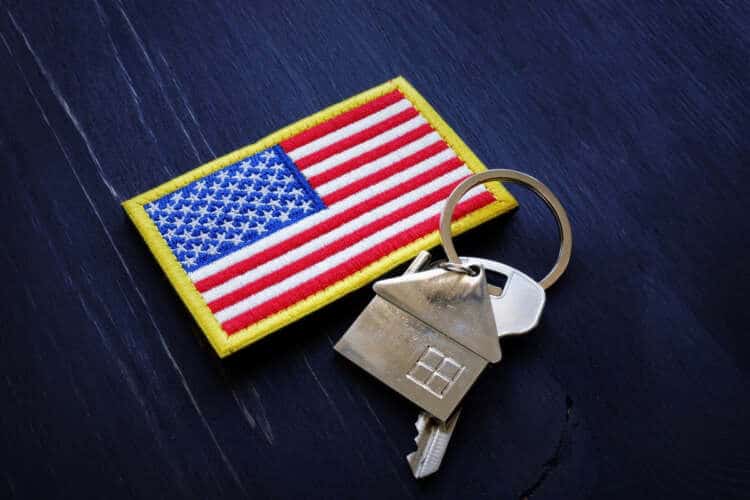What To Do If A VA Appraisal Comes In Low
Updated: April 5, 2023
Editor’s Note: The Department of Veterans Affairs has authorized exterior-only and desktop appraisals, according to a new VA circular. The VA implemented these appraisals on a temporary basis during the pandemic. It will continue the practice indefinitely for qualifying properties, the circular said.
The VA appraisal process is an essential step toward homeownership. Your appraisal can push your loan forward or halt the loan process if the appraiser identifies issues that need to be corrected or finds the home unsuitable for a VA mortgage.
What Is a VA Appraisal?
The VA appraisal is not a home inspection, though lenders and other professionals may misuse the term “inspection” when they really mean “appraisal.”
An appraisal is a tool that helps lenders, whereas home inspections help borrowers.
Appraisals ensure homes meet minimum standards and determine their fair market value so that lenders can finance homes for what they’re really worth.
What Happens During a VA Appraisal?
The VA appraisal process includes a review of the home and a look at comparable properties in the market to see how the home measures up.
Appraisers assess the home’s roof, attic, basement and mechanical systems.
Each appraisal process includes a good amount of paperwork that the VA appraiser must complete and turn in to the lender, who then applies the appraiser’s recommendations to the loan – including the home’s fair market value.
What if the VA Appraisal Comes in Low?
Sometimes the VA appraisal is lower than the asking price, and sometimes it is higher. The VA bases its loan guarantee amount on whichever amount is lower. So what happens when a VA appraisal comes in lower than the real estate asking price?
What to Do if the VA Appraisal Fails
When the appraisal is lower than the asking price, the lender doesn’t value the home as high as the seller. In such cases, your lender can submit a Reconsideration of Value (ROV) request to the VA.
If VA’s appraised value remains firm or increases during the reconsideration, you can try to negotiate with the seller for a price match.
If the seller doesn’t budge, you can still buy the real estate, as long as you pay the difference between the asking and the appraised price at closing. You can’t finance the difference into your closing costs, and paying the difference won’t count toward a down payment on your VA loan.
If you can’t pay the difference at closing, you’ll have to walk away from the deal and restart your house hunt.
Does the Borrower Have to Complete the Sale if the Appraisal Comes in Low?
No. The VA loan program features an “escape clause” permitting the borrower to walk away from a home loan penalty-free in cases where the appraised value is lower than the asking price.
The borrower isn’t required to come up with the cash difference to complete the transaction and can’t be penalized for refusing to pay the difference.
If the purchase agreement does not provide an escape clause, the lender must add one to the loan agreement.
What Causes a VA Appraisal to Come in Low?
A VA appraisal can come in low for various reasons, which are often out of the seller’s or borrower’s control.
- Home Appearance: According to Berkshire Hathaway Home Services, curb appeal and home design can significantly impact a home’s appraised value. Overgrown landscaping, hazardous or invasive plants, dead trees and dirty or damaged home exterior features can lower your appraised value. Outdated interior or exterior features can also make a big difference.
- Lack of Comparable Properties: Appraisers need home sales data to accurately determine your property’s value, according to Kairos Appraisal Services. “Flipped” homes in your area that resold at a significant increase can skew property sale comparisons. On the other hand, Kairos said, if there aren’t enough recent sales in your area, appraisers may have to compare your home to homes in other areas, which could also increase or decrease your home’s appraised value.
- Changing Market Conditions: According to Kairos, changing market conditions can limit available comparable sales data. If your market just became hot or prices are increasing rapidly, backlogged and backward-looking sales records may not be able to keep up with the market.
Can I Get a Second VA Appraisal?
You can’t request a second appraisal just because you think the home is worth more than the appraisal provided in the home’s Notice of Value (NOV).
However, you may be able to request a second appraisal or reconsideration of the NOV if you believe the appraiser missed information that could affect valuation or the appraisal fell short of VA standards or other applicable guidelines.
You can not request a VA appraisal for any property which already has a valid NOV.
However, a non-VA appraiser can provide an additional appraisal to support a request to increase the value.
According to the VA’s lender handbook, lenders or sellers must cover the cost of a second appraisal unless the veteran purchaser requests the reconsideration of value themselves.
Most Popular VA Loans and Mortgages Articles

VA Home Loan Guide

VA Loan Calculator

How to Refinance a VA Loan

VA Loan Certificate of Eligibility (COE)

2024 VA Loan Limits by County

Best VA Loan Lenders































































